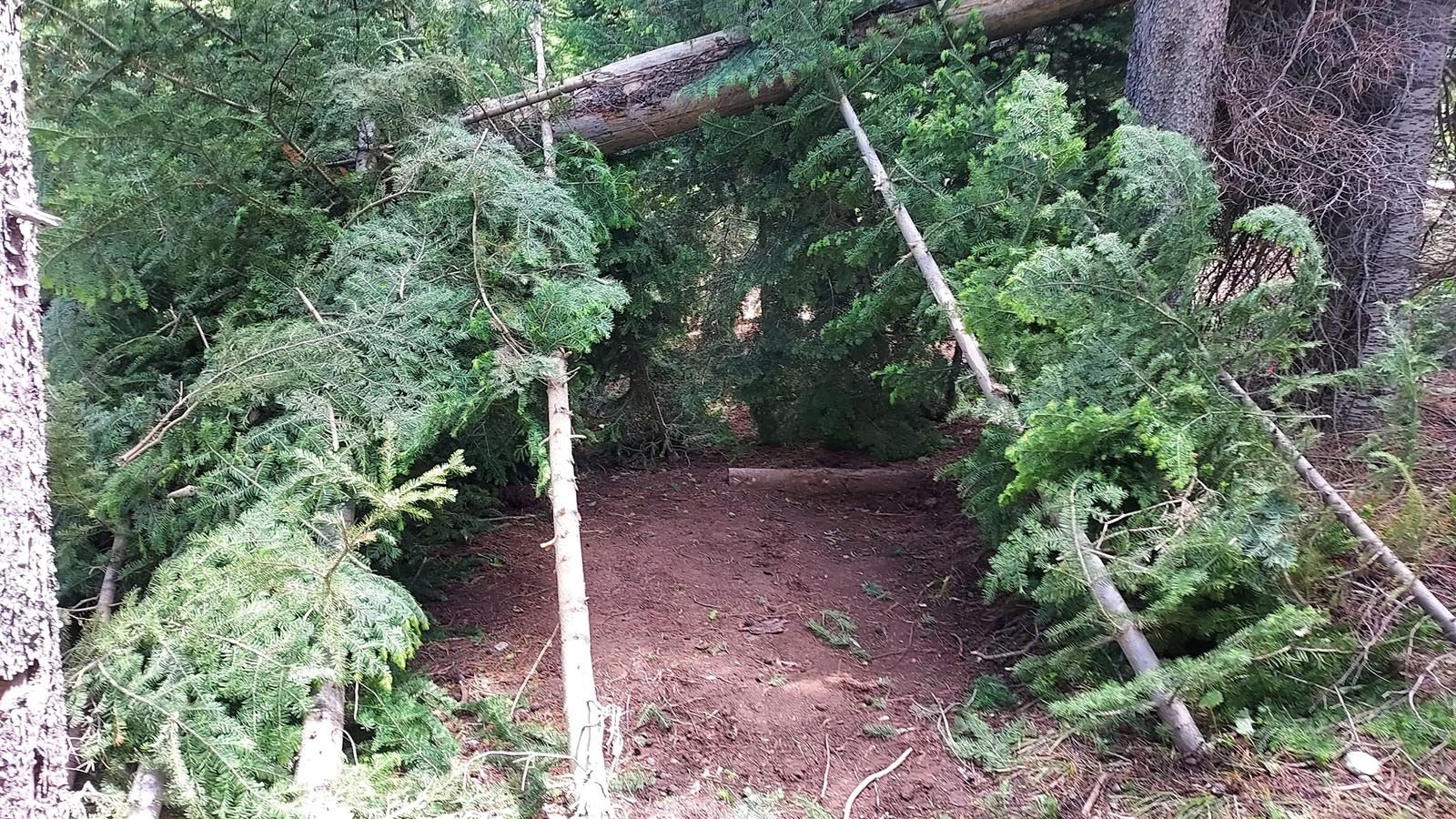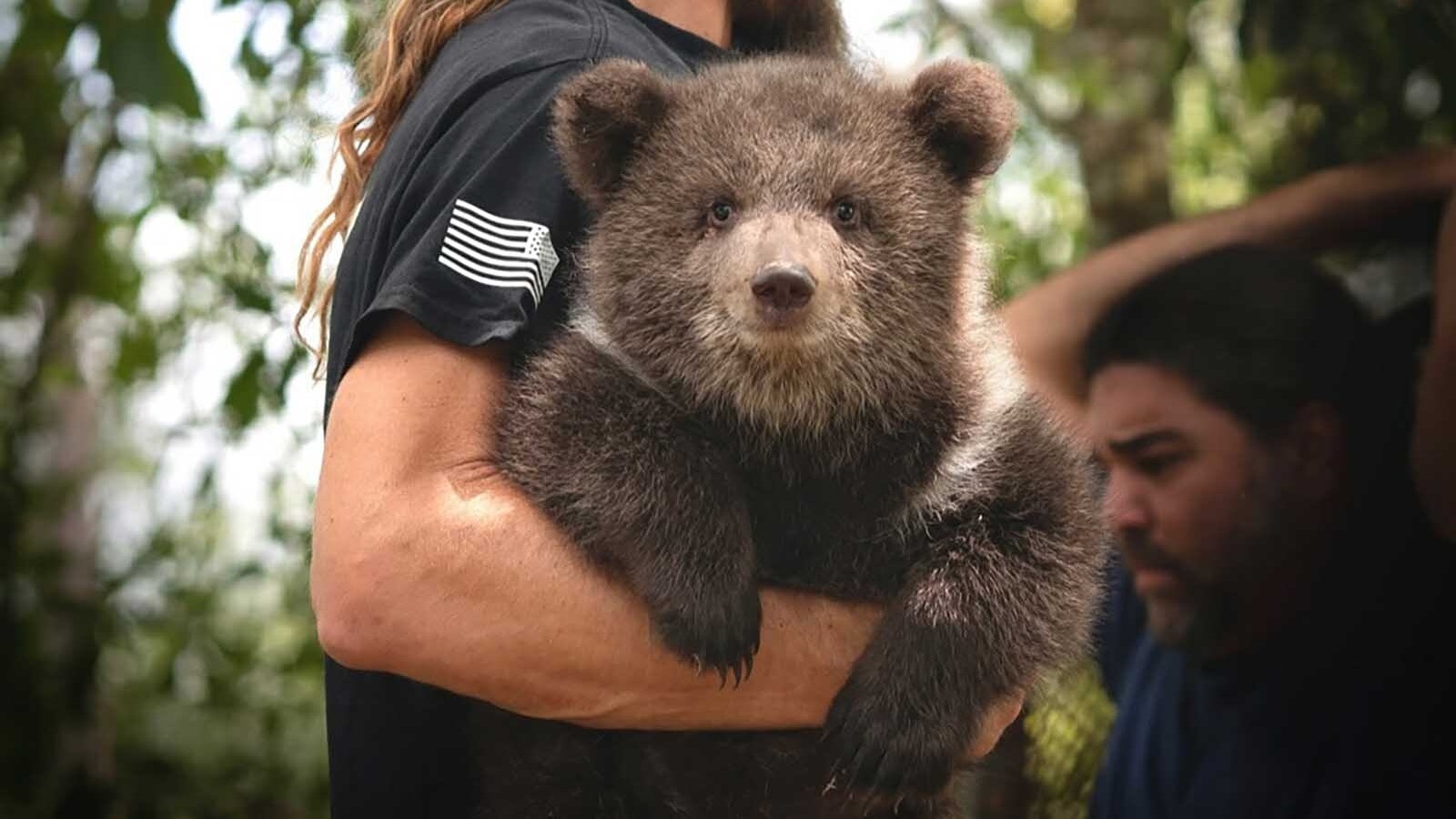When they’re treated well by their humans, most dogs have the potential for absolute devotion — the type of unflinching dedication that made a Jack Russell terrier stay near her owner’s body for weeks in the wilderness.
“The dogs tend to stick with what they know. What they know is safe. And for them, that’s their person,” Teresa Bingham told Cowboy State Daily. She’s a co-owner and canine behaviorist at Rockin E Training and Consulting in Laramie, as well as a city of Laramie animal control officer.
No Matter What, Finney Stayed
There have been a few notable examples of dogs staying near their owner’s bodies after those people died in remote areas of the West.
Most recently, a Jack Russell terrier named “Finney” stayed near the body of Richard Moore, 71, who died of hypothermia in August while hiking in the mountains near his hometown of Pagosa Springs, Colorado. Rescuers couldn’t find him after he didn’t return home from his hike.
Ten weeks later, Moore’s body was discovered by a hunter — and Finney was still nearby. She was down to only 6 pounds, half her normal body weight. It was surmised that she probably survived by hunting small rodents.
After being examined by a veterinarian and cleared of any major health problems, Finney was returned to Moore’s surviving family members.
She suffered an injury to her snout that will probably leave a scar, but otherwise is doing well, Moore’s widow, Dana Holby, told Colorado’s 9News.
“She has gained almost all of her weight back and her strength is almost where it was. She is the miracle dog," Holby said. "She is now 3, very clingy and will not let me out of her sight. Her ravenous appetite has calmed down, but at first she could not get enough to eat and wanted food at all times of the day and night.”
Bingham said she’s familiar with Finney’s story, and a dog showing that level of loyalty and devotion doesn’t surprise her.
“I’ve seen it happen in town, where the owners will pass away at home and not be discovered immediately, and that animal will stay right with their person,” she said.
It frequently boils down to how much time and attention people invest in their dogs, she said.
“Certainly, you have to look at the bond a person has with their animal. If they’re out hiking with their dog all that time, and bonding with their dog all of the time, that can make the difference” and produce the sort of loyalty that Finney had, she said.
And those bonds can help in other situations, Bingham said. For instance, if a dog gets lost in the wild, the owner can leave an article of clothing or something else with their scent on it near the trail. She knows of cases in which the dogs were found loyally laying on or near the item that had their person’s scent on it.
Is It The Breed?
A dog’s breed can make a difference in being supremely loyal, but not a significant one, Bingham said. Terriers and cattle dog breeds are known to be loyal. While, for example, chows and huskies tend to be highly independent and somewhat aloof, even toward their owners, Bingham said.
But every individual dog is different. And again, it can frequently come down to how the dog is treated, she said.
“There’s always an exception in every single one of those breeds, depending upon their bond and the individual person they’re with,” Bingham said.
Golden retrievers have a reputation for “thinking everybody is their friend,” she said, while livestock guardian breeds, like great Pyrenees, can be quirky about wanting to make sure their “herd” stays safe.
“They not only have their pack mentality, but their herd mentality. So, if everybody is out for a hike, they will go and meet all the people, because they want to keep the ‘herd’ together,” Bingham said.
Then There’s Hachiko
Probably the most famous and retold modern stories of a dog’s loyalty to its master is Hachiko, a Japanese Akita that would diligently wait for his master at a train station for nearly 10 years after the man had died.
Hachiko would meet his master at the train station after work each day, until one day his master didn’t show. The man had died at work.
But for the rest of the dog’s life until he died in 1935, Hachiko would dutifully show up to the train station every day and wait as commuters got off the trains. Eventually, after being featured in local news accounts, Hachiko became a symbol of loyalty in Japan and inspired several books and movies.
Instinct And Mutual Benefit
Dogs are descended from wolves, a pack animal, so they’re naturally social animals, Bingham said. People also have over the ages bred dogs for certain characteristics, such as a drive to hunt birds, kill vermin or protect livestock.
And some breeds specialize in tasks that are more mundane, but not any less important to their people.
“King Charles spaniels, for example, were bred to be lap dogs for royalty. And they just want to sit on peoples’ laps and be pampered,” Bingham said.
Loyalty to people “is an evolutionary trait. For many generations, we have bred dogs to look to people for direction,” she said.
Humans have also built a strong bonds of mutual benefit with dogs over the ages, she added. Dogs can provide service or companionship to humans, and in return we’ve given them food, shelter and a sense of belonging.
Dogs might look at human families as their “packs” in a rough sense. But wolf packs trying to survive in the wild usually have harder system of rank and discipline.
“The current dog training methods are built more around mutual respect, give-and-take,” she said. “There is an element of dominance on the person’s part, but it’s not, ‘I’m going to scare you into submission until you do what I want.’”
Just Being There Can Make The Difference
So, if you want the type of devotion and loyalty from your dog Finney had for his owner, you must do your part by being there for them too, Bingham said.
“Just playing with your dog can build bonding, and letting them be a part of what you’re doing on a regular basis,” she said.
“If you have a dog that’s separated in one way or another, if it’s kept in a kennel or in a back room, that makes it harder for them to build that connection in any sort of a loyal bonding,” Bingham added.
Mark Heinz can be reached at mark@cowboystatedaily.com.





